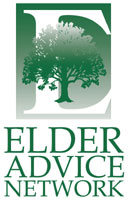|
Most people are familiar with the term "Power of Attorney," but few understand its relevance, especially in the care giving spectrum. Power of Attorney, or POA for short, does not grant one the same rights or qualification as an actual attorney who has passed the bar and is certified to practice law. In fact, POA is not even the same thing as Durable Power of Attorney or DPOA. For that matter, DPOA is not even the same thing as a Power of Attorney for Health Care or POAHC. Confused yet? Here's what it all means.
Power of Attorney (POA)
POA is an instrument through which one person -- the principal -- gives another person -- the agent -- the right to act legally on her behalf. The range of rights the principal might grant the agent could be anything from paying bills to actually selling property. POA is frequently used when an elderly person is still well in control of her faculties, but may need an adult child, for instance, to help with certain tasks of daily living. POA might also be granted for a temporary period if an elder is away on a long trip or in a care facility for an extended period of time.
The relationship between principal and agent is like the relationship between employer and employee. The agent acts for the principal according to the principal's direction, as set forth in the POA
Durable Power of Attorney (DPOA)
Durable Power of Attorney differs from standard Power of Attorney in that powers continue even if the principal becomes incapacitated. A DPOA can be an important care tool because it maintains the care continuum after the principal becomes incapacitated and avoids potential legal challenges as to who should oversee the affairs of the principal.
Durable Power of Attorney should:
Adhere to the rules of the state in which it is created
Include a backup if the original agent is not available
Spell out clearly what matters the agent can and cannot handle and the duration the power is in effect if the period is limited
Durable Power of Attorney for Health Care
A very different form of DPOA is the DPOA for Health Care. DPOAHC is specifically limited to health care and medically-related decisions on behalf of the principal.
DPOA for Health Care, or Finances for that matter, is something that should be taken very seriously. The principal can often be held responsible for decisions made by the agent once power is revoked. Spend time considering who it is you would want making decisions for you and then spend time with that person explaining exactly what your wishes would be in different situations.
Although the agent may have broad powers, the law requires the agent to act only according to the principal's instructions and best interests. If the agent misuses or takes the principal's property in violation of the POA, that is a breach of the agent's fiduciary obligations and may even be prosecuted as embezzlement. An agent should be carefully chosen, but signing a POA does not give the agent permission to steal.
|

